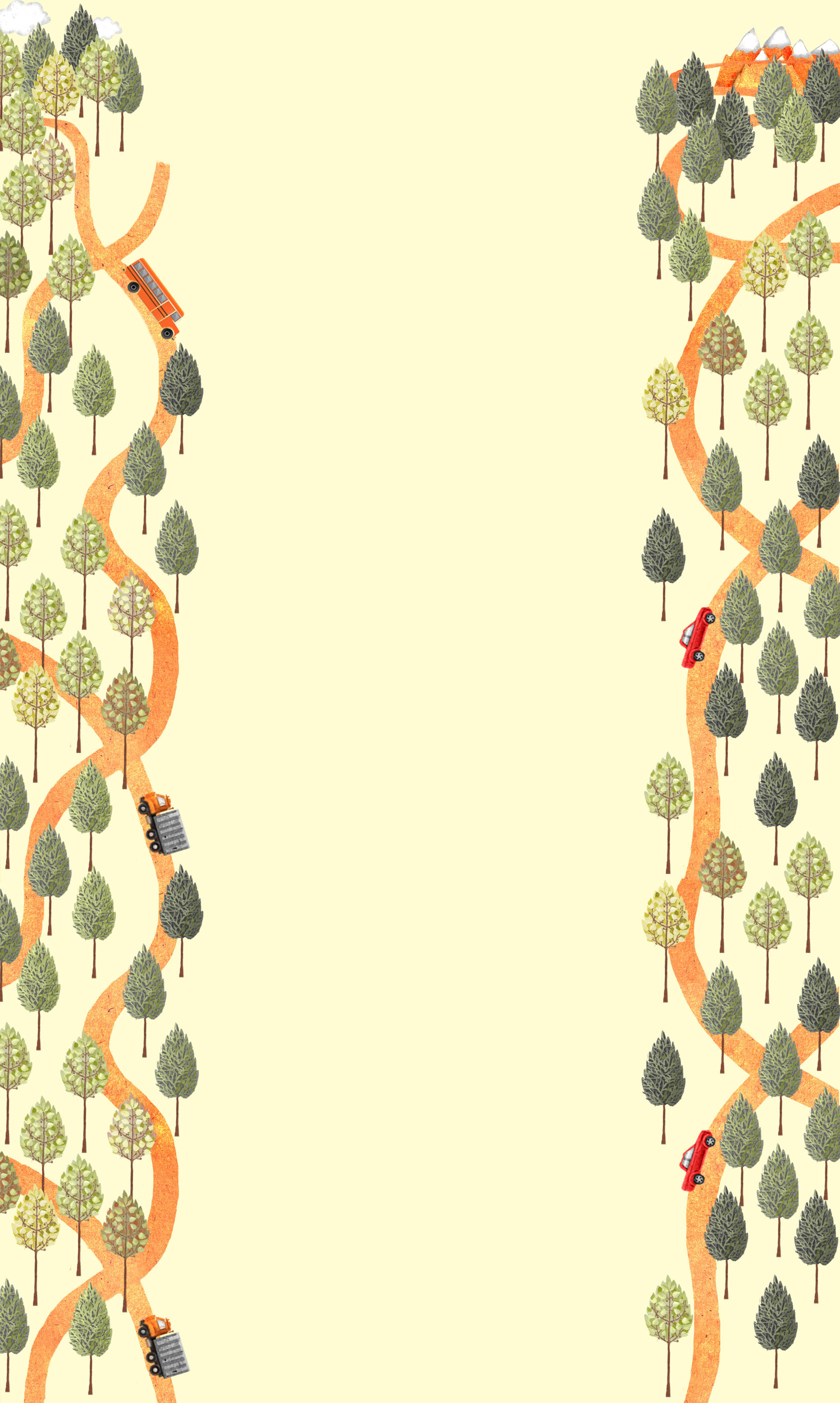


Lesson 16
In which the imagination
proves stronger than memory
proves stronger than memory
Lesson 16
In which the imagination proves stronger than memory
CONTENTS OF THE VIDEO LESSON
00:00 - Intro. This lesson will be easy!
01:00 - fast repetition of what we've learnt in the previous
►►►lesson.
►►►I wanted to do something interesting – רציתי לעשות משהו
►►►מעניין
►►►We will begin tomorrow – נתחיל מחר
►►►I will sing you a song – אשיר לך שיר
►►►I have never seen such big ears – אף פעם לא ראיתי אוזניים
►►►גדולות כל כך
►►►We tried to help – ניסינו לעזור
03:56 - PAST TENSE for the personal pronoun "you" (את אתה
►►►אתם אתן): just take the endings of the personal pronouns ►►►and "glue" them at the end of the verb.
►►►AT (you, feminine singular) את - – ends with T, and that's ►►►the ending to glue to the verb
►►►ATA (you, masculine singular ) אתה -– ends with TA ►►►(when glued to the verb is written without "hei"), and ►►►that's the ending to glue to the verb
►►►ATEM (you, masculine plural) אתם -– ends with TEM, and ►►►that's the ending to glue to the verb
►►►ATEN (you, feminine plural) אתן -– ends with TEN, and ►►►that's the ending to glue to the verb
05:36 - possible confusion between past tenses for masculine ►►►and feminine singular form (both ending with "tav") in ►►►non-vocalised texts.
06:15 - practice
►►►Why didn't you (f. s.) come yesterday? - LAMA LO BAT ►►►ETMOL - למה לא באת אתמול?
►►►Where did you (m. p.) live? - EIFO GARTEM - איפה גרתם?
►►►What did you (m. s) read in this book? - MA KARATA ►►►BASEFER HAZE? - מה קראת בספר הזה?
►►►What did you think? - MA KHASHAVTA? - מה חשבת?
►►►Did you (f. pl) like the food? - AHAVTEN ET HAOKHEL? –
►►►אהבתן את האוכל?
►►►Why didn't you (m. s.) tell me that you have a dog? – ►►►LAMA LO SIPARTA LI SHEYESH LEKHA KELEV? – למה לא
►►► סיפרת לי שיש לך כלב?
►►►Where have you (m. pl.) been working? – EIFO
►►►AVADTEM? – איפה עבדתם?
►►►When did you (m. s.) start working? – MATAY
►►►HITKHALTA LAAVOD? – מתי התחלת לעבוד?
►►►Thank you very much, you (m. pl.) have explained well! – ►►►TODA RABA, HISBARTEM TOV – תודה רבה הסברתם טוב.
►►►What did you (m. s.) want? – MA RATZITA? – מה רצית?
►►►What have you (m. pl.) done? – MA ASITEM? – מה
►►►עשיתם?
►►►Why have you (m. s.) changed it? – LAMA SHINITA ET
►►►ZE? – למה שינית את זה?
12:50 - compound words - SMIKHUT
►►►Member (m. s.) of parliament – KHAVER KNESET - חבר
►►►כנסת
►►►Member (f. s.) of parliament – KHAVRAT KNESET - חברת
►►►כנסת
►►►Members (m. pl.) of parliament – KHAVREY KNESET -
►►►חברי כנסת
►►►Members (f. pl.) of parliament – KHAVROT KNESET -
►►►חברות כנסת
20:40 - practice
►►►Story of a life – SIPUR KHAYIM – סיפור חיים
►►►Stories of life – SIPUREY KHAYIM – סיפורי חיים
►►►School students (m.) – TALMIDEY BEYT SEFER – תלמידי
►►►בית ספר
►►►School students (f.) – TALMIDOT BEYT SEFER – תלמידות
►►►בית ספר
►►►School student (f.) – TALMIDAT BEYT SEFER – תלמידת
►►►בית ספר
►►►Vanilla ice cream – GLIDAT VANIL - גלידת וניל
►►►Evening news – KHADSHOT EREV - חדשות ערב
►►►Homework (home lessons) – SHIUREI BAYIT – שיעורי בית
24:05 - your keys for remembering smikhut: SHIUREI BAYIT and ►►►GLIDAT VANIL
25:20 - next lesson: "you" forms in future tense!
01:00 - fast repetition of what we've learnt in the previous
►►►lesson.
►►►I wanted to do something interesting – רציתי לעשות משהו
►►►מעניין
►►►We will begin tomorrow – נתחיל מחר
►►►I will sing you a song – אשיר לך שיר
►►►I have never seen such big ears – אף פעם לא ראיתי אוזניים
►►►גדולות כל כך
►►►We tried to help – ניסינו לעזור
03:56 - PAST TENSE for the personal pronoun "you" (את אתה
►►►אתם אתן): just take the endings of the personal pronouns ►►►and "glue" them at the end of the verb.
►►►AT (you, feminine singular) את - – ends with T, and that's ►►►the ending to glue to the verb
►►►ATA (you, masculine singular ) אתה -– ends with TA ►►►(when glued to the verb is written without "hei"), and ►►►that's the ending to glue to the verb
►►►ATEM (you, masculine plural) אתם -– ends with TEM, and ►►►that's the ending to glue to the verb
►►►ATEN (you, feminine plural) אתן -– ends with TEN, and ►►►that's the ending to glue to the verb
05:36 - possible confusion between past tenses for masculine ►►►and feminine singular form (both ending with "tav") in ►►►non-vocalised texts.
06:15 - practice
►►►Why didn't you (f. s.) come yesterday? - LAMA LO BAT ►►►ETMOL - למה לא באת אתמול?
►►►Where did you (m. p.) live? - EIFO GARTEM - איפה גרתם?
►►►What did you (m. s) read in this book? - MA KARATA ►►►BASEFER HAZE? - מה קראת בספר הזה?
►►►What did you think? - MA KHASHAVTA? - מה חשבת?
►►►Did you (f. pl) like the food? - AHAVTEN ET HAOKHEL? –
►►►אהבתן את האוכל?
►►►Why didn't you (m. s.) tell me that you have a dog? – ►►►LAMA LO SIPARTA LI SHEYESH LEKHA KELEV? – למה לא
►►► סיפרת לי שיש לך כלב?
►►►Where have you (m. pl.) been working? – EIFO
►►►AVADTEM? – איפה עבדתם?
►►►When did you (m. s.) start working? – MATAY
►►►HITKHALTA LAAVOD? – מתי התחלת לעבוד?
►►►Thank you very much, you (m. pl.) have explained well! – ►►►TODA RABA, HISBARTEM TOV – תודה רבה הסברתם טוב.
►►►What did you (m. s.) want? – MA RATZITA? – מה רצית?
►►►What have you (m. pl.) done? – MA ASITEM? – מה
►►►עשיתם?
►►►Why have you (m. s.) changed it? – LAMA SHINITA ET
►►►ZE? – למה שינית את זה?
12:50 - compound words - SMIKHUT
►►►Member (m. s.) of parliament – KHAVER KNESET - חבר
►►►כנסת
►►►Member (f. s.) of parliament – KHAVRAT KNESET - חברת
►►►כנסת
►►►Members (m. pl.) of parliament – KHAVREY KNESET -
►►►חברי כנסת
►►►Members (f. pl.) of parliament – KHAVROT KNESET -
►►►חברות כנסת
20:40 - practice
►►►Story of a life – SIPUR KHAYIM – סיפור חיים
►►►Stories of life – SIPUREY KHAYIM – סיפורי חיים
►►►School students (m.) – TALMIDEY BEYT SEFER – תלמידי
►►►בית ספר
►►►School students (f.) – TALMIDOT BEYT SEFER – תלמידות
►►►בית ספר
►►►School student (f.) – TALMIDAT BEYT SEFER – תלמידת
►►►בית ספר
►►►Vanilla ice cream – GLIDAT VANIL - גלידת וניל
►►►Evening news – KHADSHOT EREV - חדשות ערב
►►►Homework (home lessons) – SHIUREI BAYIT – שיעורי בית
24:05 - your keys for remembering smikhut: SHIUREI BAYIT and ►►►GLIDAT VANIL
25:20 - next lesson: "you" forms in future tense!
CONTENTS OF THE VIDEO LESSON
00:00 - Intro. This lesson will be easy!
01:00 - fast repetition of what we've learnt in the previous lesson. I wanted to do something interesting – רציתי לעשות משהו מעניין, We will begin tomorrow – נתחיל מחר, I will sing you a song – אשיר לך שיר, I have never seen such big ears – אף פעם לא ראיתי אוזניים גדולות כל כך, We tried to help – ניסינו לעזור.
03:56 - PAST TENSE for the personal pronoun "you" (את אתה אתם אתן): just take the endings of the personal pronouns and "glue" them at the end of the verb. AT (you, feminine singular) את - – ends with T, and that's the ending to glue to the verb ATA (you, masculine singular ) אתה -– ends with TA (when glued to the verb is written without "hei"), and that's the ending to glue to the verb ATEM (you, masculine plural) אתם -– ends with TEM, and that's the ending to glue to the verb ATEN (you, feminine plural) אתן -– ends with TEN, and that's the ending to glue to the verb.
05:36 - possible confusion between past tenses for masculine and feminine singular form (both ending with "tav") in non-vocalised texts.
06:15 - practice: Why didn't you (f. s.) come yesterday? - LAMA LO BAT ETMOL - למה לא באת אתמול? Where did you (m. p.) live? - EIFO GARTEM - איפה גרתם? What did you (m. s) read in this book? - MA KARATA BASEFER HAZE? - מה קראת בספר הזה? What did you think? - MA KHASHAVTA? - מה חשבת? Did you (f. pl) like the food? - AHAVTEN ET HAOKHEL? – אהבתן את האוכל? Why didn't you (m. s.) tell me that you have a dog? – LAMA LO SIPARTA LI SHEYESH LEKHA KELEV? – למה לא סיפרת לי שיש לך כלב? Where have you (m. pl.) been working? – EIFO AVADTEM? – איפה עבדתם? When did you (m. s.) start working? – MATAY HITKHALTA LAAVOD? – מתי התחלת לעבוד? Thank you very much, you (m. pl.) have explained well! – TODA RABA, HISBARTEM TOV – תודה רבה הסברתם טוב. What did you (m. s.) want? – MA RATZITA? – מה רצית? What have you (m. pl.) done? – MA ASITEM? – מה עשיתם? Why have you (m. s.) changed it? – LAMA SHINITA ET ZE? – למה שינית את זה?
12:50 - compound words - SMIKHUT: Member (m. s.) of parliament – KHAVER KNESET - חבר כנסת Member (f. s.) of parliament – KHAVRAT KNESET - חברת כנסת Members (m. pl.) of parliament – KHAVREY KNESET - חברי כנסת Members (f. pl.) of parliament – KHAVROT KNESET - חברות כנסת
20:40 - practice: Story of a life – SIPUR KHAYIM – סיפור חיים Stories of life – SIPUREY KHAYIM – סיפורי חיים School students (m.) – TALMIDEY BEYT SEFER – תלמידי בית ספר School students (f.) – TALMIDOT BEYT SEFER – תלמידות בית ספר School student (f.) – TALMIDAT BEYT SEFER – תלמידת בית ספר Vanilla ice cream – GLIDAT VANIL - גלידת וניל Evening news – KHADSHOT EREV - חדשות ערב Homework (home lessons) – SHIUREI BAYIT – שיעורי בית
24:05 - your keys for remembering smikhut: SHIUREI BAYIT and GLIDAT VANIL
25:20 - next lesson: "you" forms in future tense!
01:00 - fast repetition of what we've learnt in the previous lesson. I wanted to do something interesting – רציתי לעשות משהו מעניין, We will begin tomorrow – נתחיל מחר, I will sing you a song – אשיר לך שיר, I have never seen such big ears – אף פעם לא ראיתי אוזניים גדולות כל כך, We tried to help – ניסינו לעזור.
03:56 - PAST TENSE for the personal pronoun "you" (את אתה אתם אתן): just take the endings of the personal pronouns and "glue" them at the end of the verb. AT (you, feminine singular) את - – ends with T, and that's the ending to glue to the verb ATA (you, masculine singular ) אתה -– ends with TA (when glued to the verb is written without "hei"), and that's the ending to glue to the verb ATEM (you, masculine plural) אתם -– ends with TEM, and that's the ending to glue to the verb ATEN (you, feminine plural) אתן -– ends with TEN, and that's the ending to glue to the verb.
05:36 - possible confusion between past tenses for masculine and feminine singular form (both ending with "tav") in non-vocalised texts.
06:15 - practice: Why didn't you (f. s.) come yesterday? - LAMA LO BAT ETMOL - למה לא באת אתמול? Where did you (m. p.) live? - EIFO GARTEM - איפה גרתם? What did you (m. s) read in this book? - MA KARATA BASEFER HAZE? - מה קראת בספר הזה? What did you think? - MA KHASHAVTA? - מה חשבת? Did you (f. pl) like the food? - AHAVTEN ET HAOKHEL? – אהבתן את האוכל? Why didn't you (m. s.) tell me that you have a dog? – LAMA LO SIPARTA LI SHEYESH LEKHA KELEV? – למה לא סיפרת לי שיש לך כלב? Where have you (m. pl.) been working? – EIFO AVADTEM? – איפה עבדתם? When did you (m. s.) start working? – MATAY HITKHALTA LAAVOD? – מתי התחלת לעבוד? Thank you very much, you (m. pl.) have explained well! – TODA RABA, HISBARTEM TOV – תודה רבה הסברתם טוב. What did you (m. s.) want? – MA RATZITA? – מה רצית? What have you (m. pl.) done? – MA ASITEM? – מה עשיתם? Why have you (m. s.) changed it? – LAMA SHINITA ET ZE? – למה שינית את זה?
12:50 - compound words - SMIKHUT: Member (m. s.) of parliament – KHAVER KNESET - חבר כנסת Member (f. s.) of parliament – KHAVRAT KNESET - חברת כנסת Members (m. pl.) of parliament – KHAVREY KNESET - חברי כנסת Members (f. pl.) of parliament – KHAVROT KNESET - חברות כנסת
20:40 - practice: Story of a life – SIPUR KHAYIM – סיפור חיים Stories of life – SIPUREY KHAYIM – סיפורי חיים School students (m.) – TALMIDEY BEYT SEFER – תלמידי בית ספר School students (f.) – TALMIDOT BEYT SEFER – תלמידות בית ספר School student (f.) – TALMIDAT BEYT SEFER – תלמידת בית ספר Vanilla ice cream – GLIDAT VANIL - גלידת וניל Evening news – KHADSHOT EREV - חדשות ערב Homework (home lessons) – SHIUREI BAYIT – שיעורי בית
24:05 - your keys for remembering smikhut: SHIUREI BAYIT and GLIDAT VANIL
25:20 - next lesson: "you" forms in future tense!
SUMMARY

And here is the summary of the lesson
- if you like infographics more than watching videos, or
- if you use this website just for brush-up, review and recollection
- if you use this website just for brush-up, review and recollection

And here is the summary of the lesson
- if you like infographics more than watching videos, or
- if you use this website just for brush-up,
review and recollection
- if you like infographics more than watching videos, or
- if you use this website just for brush-up,
review and recollection

And here is the summary of the lesson
- if you like infographics more than watching videos, or
- if you use this website just for brush-up, review and recollection
- if you use this website just for brush-up, review and recollection
VOCABULARY
For the sake of change...
... there are more Nouns than Verbs today!


חיה animal מוזר strange להכיר מכיר מכירה to know to be acquainted with פיל elephant לקחת לוקח לוקחת to take שמש sun מעולה excellent חבל pity שיעור lesson

New words for this lesson
ay here today - nothing to say here today - nothing to say here today - not
ay here today - nothing to say here today - nothing to say here today - not
READING
Ever wondered how come that I always
have something to say before the Reading section?
Well, today I don't.
have something to say before the Reading section?
Well, today I don't.
Ever wondered how come that I always have something to say before the Reading section?
Well, today I don't.
Well, today I don't.
If you want more practice -
try back translations.
try back translations.
LISTENING
And NOW -
to the familiar Practice section!
to the familiar Practice section!
And NOW -
to the familiar Practice section!
to the familiar Practice section!
PRACTICE
Practice Section Aid
Look at all the words without the translations.
Do you remember them?
Make sure you do - you will need them!
Look at all the words without the translations.
Do you remember them?
Make sure you do - you will need them!


Don't miss the bonus!
Click the red button below!
Click the red button below!

Don't miss the bonus!
Click the red button below!
Click the red button below!
Done with this lesson? Click here to get a bonus!
Click here to get a bonus!
External Links
Prepositions trainer
You've already noticed, that the most difficult subjects in Hebrew are verb declensions (of which you are already familiar!) and... prepositions connecting the verb to the rest of the sentence (why, for the Gods sake, should it be "לעזור לאמא" and not "לעזור אמא" or even "לעזור את אמא"?)
The good news are that there are only several dozens of these problematic cases prepositions in the whole language, so the more you deal with Hebrew, the faster you'll know them.
However, for the most impatient and aspiring among you I've made a series of 4 games which will train you in the majority of these problematic cases.
Enjoy! :)
The good news are that there are only several dozens of these problematic cases prepositions in the whole language, so the more you deal with Hebrew, the faster you'll know them.
However, for the most impatient and aspiring among you I've made a series of 4 games which will train you in the majority of these problematic cases.
Enjoy! :)
If you want to have a look at a list of verbs with unusual prepositions (you can use it to cheat at the exercises above :)) - click here.
How do you like the course so far?








